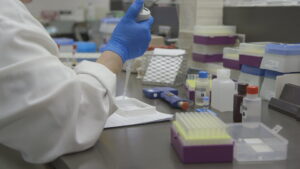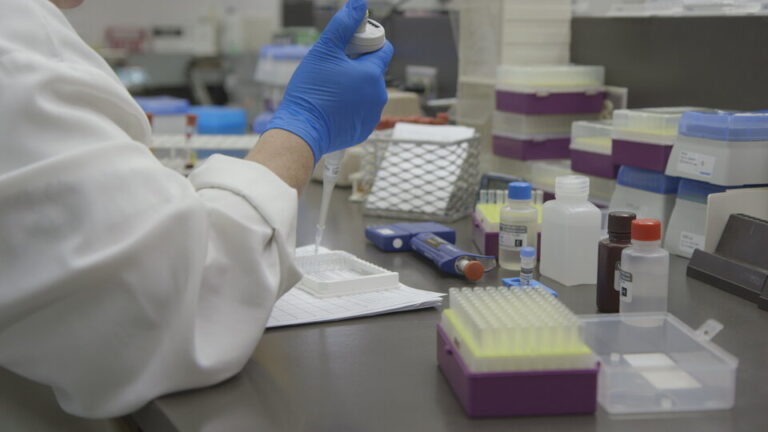Racial Disparities and Food Allergies
For years, if not centuries, racial disparities have affected Black, Hispanic, and Asian communities more than that of their white counterparts. While some aspects have improved slightly, it hasn’t been enough to truly make a difference. Now, researchers have discovered these racial disparities could also have a hand in food allergies.
In a recent survey study, Dr. Ruchi S. Gupta, MPH, Dr. Audrey Brewer, Dr. Gary Soffer, Dr. Christopher M. Warren, Ph.D., and Jialing Jiang, BA, analyzed data gathered from 51,819 households. Their research established that Black, Hispanic, and Asian individuals were more likely to have food allergies than white people. Additionally, the data showed that households with the highest income bracket were less likely to have food allergies.
Moreover, ethnic, socioeconomic, and racial disparities are now shown to have prevalence in people developing food allergies. Furthermore, these differences are evident in emergency department visits and epinephrine autoinjector use related to food allergies. The researchers published their findings in JAMA Network Open on June 14.
Uncovered Data
Food allergies affect roughly 8% of children and 11% of adults in the United States. Previously, researchers explored racial disparities in food allergy outcomes among Black and white children. However, there has been little known about the distribution of food allergies in other ethnic, socioeconomic, and racial subpopulations.
Dr. Gupta is the director of the Center for Food Allergy and Asthma Research and a professor of pediatrics at Northwestern University Feinberg School of Medicine in Chicago. “Food allergies are not frequently talked about impacting racial and ethnic communities. It’s not on the radar. But we now know it does impact them more, and it’s important to improve awareness,” stated Dr. Gupta.
Almost half, 48%, of those who participated in the study, revealed they had developed at least one new food allergy that they didn’t have as a child. “Those numbers were a little astonishing. Additionally, about one in four adults said they developed an allergy [as] an adult and never had a food allergy as a child,” added Dr. Gupta.
Past Studies
 Over the past decade, scientists, including Dr. Gupta, have studied food allergies and published their findings. Thanks to their research they were able to establish a rise in childhood food allergies. The groundbreaking data led to a greater understanding of food allergies. It also exposed “the risk of anaphylactic reaction and death and the importance of having epinephrine in schools as a life-saving tool,” according to Northwestern University Feinberg School of Medicine’s website.
Over the past decade, scientists, including Dr. Gupta, have studied food allergies and published their findings. Thanks to their research they were able to establish a rise in childhood food allergies. The groundbreaking data led to a greater understanding of food allergies. It also exposed “the risk of anaphylactic reaction and death and the importance of having epinephrine in schools as a life-saving tool,” according to Northwestern University Feinberg School of Medicine’s website.
Ultimately, it was researching childhood food allergies that led Dr. Gupta to realize there was little known about on-set food allergies for adults. As such, she decided to do some investigation.
“Since we had the expertise in doing large-scale prevalence studies, we thought we would modify our pediatric study for adults and really understand how many people in the United States are affected by food allergy and what that looks like,” explained Dr. Gupta.
Astonishing Facts
In the recent study, researchers discovered 10% of U.S. adults (over 26 million) are believed to have a food allergy. The most commonly reported adult food allergy is shellfish. Of those who participated in the study, almost 3% were allergic to shellfish. Next, milk and peanuts tied for second place with 2% each.
Researchers have theorized as to why there is a rise in food allergies for both adults and children. However, there is no definitive answer, said Dr. Gupta. “Chances are there is not one factor,” she added. Most likely it will “be a group of factors and how our lifestyles have changed.”
The one big breakthrough that’s happened is there was a large study done in London called the LEAP Study, and they found that if you feed infants, high-risk infants, [and] peanut products early in life, that you may be able to prevent peanut allergy.
Meaning, exposing one’s gut to peanuts “early could be preventive.” Dr. Gupta said that breakthrough was really big. “For the time we have a way to potentially prevent it,” she added.
Racial Disparities Found in the Study
 The study established that food allergies were more prevalent in Black and Hispanic communities, with 10.6% each. Next were Asian individuals at 10.5% and white people came in last at 9.5%.
The study established that food allergies were more prevalent in Black and Hispanic communities, with 10.6% each. Next were Asian individuals at 10.5% and white people came in last at 9.5%.
The data also suggested that Black individuals with a food allergy were more likely to report multiple food allergies. In fact, they are 50.6% more likely. Asian and white individuals had the lowest rates of severe food allergies reported.
It’s a well-known fact “that racial and ethnic minorities, as well as underserved populations, often do not get to an allergist for diagnosis,” stated Dr. Gupta. These individuals will experience food allergy symptoms. However, racial disparities cause “access to get to a specialist [to be] challenging.”
“The fact that there were no treatments led them to just try and avoid the food,” added Dr. Gupta. The U.S. National Institute of Allergy and Infectious Diseases helped fund the study.
By Sheena Robertson
Sources:
US News: Race, Income Affect Your Risk for a Food Allergy
JAMA Network Open: Racial, Ethnic, and Socioeconomic Differences in Food Allergies in the US
Northwestern University Feinberg School of Medicine: Why Are Food Allergies on the Rise? with Ruchi Gupta, MD, MPH
Top and Featured Image Courtesy of Jazz Guy’s Flickr Page – Creative Commons License
First Inset Image Courtesy of M‘s Flickr Page – Creative Commons License
Second Inset Image Courtesy of Amy Slabach‘s Flickr Page – Creative Commons License









